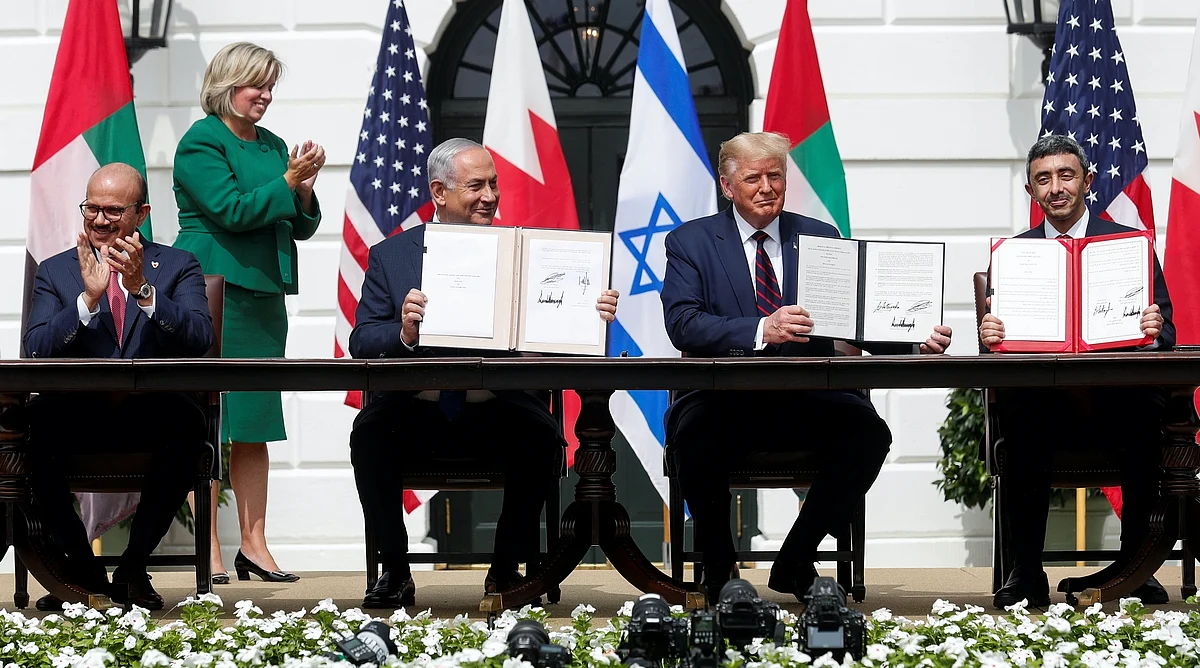
UAE: Experts Explain How Abraham Accords Reshape Geopolitics In China, Iran
The Abraham Accords are reshaping geopolitics far beyond the Middle East, influencing how China positions itself in Asia and how the United States is structuring its global infrastructure initiatives, according to experts speaking at a recent policy panel.
Speakers at the Abraham Accords Conference in Abu Dhabi drew a direct line between the Accords and the 25-year Comprehensive Strategic Partnership Agreement between China and Iran , signed in 2021. Chelsi Mueller, researcher at Moshe Dayan Center, said the timing of the pact was not coincidental, arguing it came as a strategic pushback to the region's rapid realignment after the UAE–Israel normalisation. Beijing viewed regional normalisation as part of a broader US repositioning.“It came in the context of US moves in the Pacific,” she added.
Recommended For YouStay up to date with the latest news. Follow KT on WhatsApp Channels.
While the Accords primarily reshaped Middle Eastern diplomatic and economic ties, they also shifted calculations in Tehran and Beijing, who saw the new partnerships as strengthening Washington's influence across Asia and the Gulf.
Mueller stressed that the accords are now embedded in the architecture of global infrastructure competition - particularly through the India–Middle East–Europe Economic Corridor (IMEC). She said IMEC couldn't have existed without the regional cooperation framework enabled by the UAE–Israel normalisation.“The Abraham Accords provide the foundational architecture for IMEC,” she said.
Michalis Kontos, Associate Professor at the University of Nicosia, underscored the geopolitical significance of this alignment, describing IMEC as Washington's strategic counterweight to China's Belt and Road Initiative. The US“is treating IMEC as its answer to China's Belt and Road ,” he noted, linking the project directly to the Accords-enabled transport, energy and data-sharing corridors.
Speakers agreed that China and Iran's coordinated response, and the new US-backed corridor depending on Accords-enabled routes - frame the Abraham Accords as an inflection point not only for the Middle East, but for global power competition . As long as IMEC remains part of Washington's Indo-Pacific strategy, and as long as China and Iran calibrate their long-term agreements in response to regional normalisation, the Abraham Accords will continue to carry implications far beyond diplomacy – concluded the panel.

Legal Disclaimer:
MENAFN provides the
information “as is” without warranty of any kind. We do not accept
any responsibility or liability for the accuracy, content, images,
videos, licenses, completeness, legality, or reliability of the information
contained in this article. If you have any complaints or copyright
issues related to this article, kindly contact the provider above.


















Comments
No comment